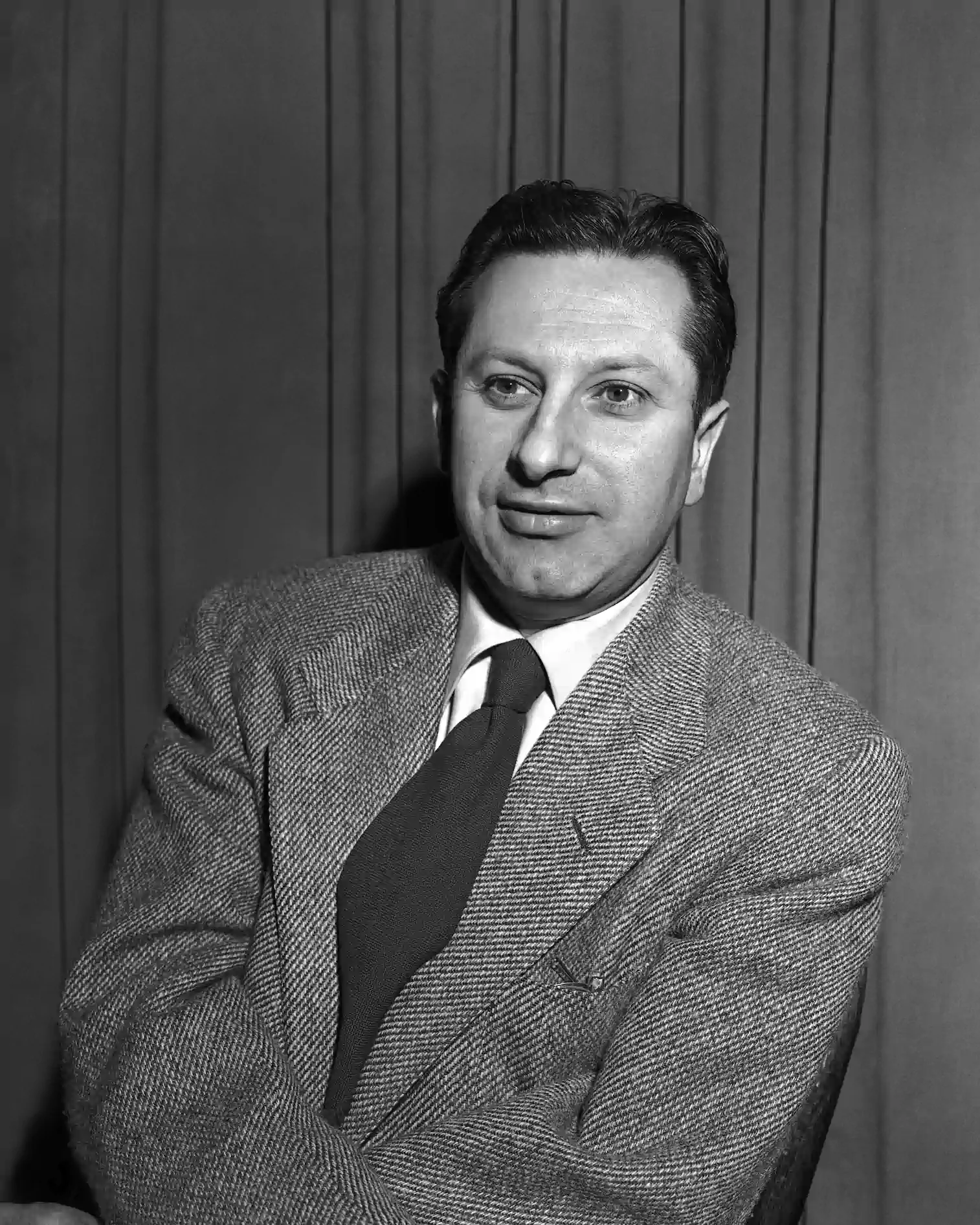The multi - talented

© Zuma Press Inc./Alamy. Studs Terkel, 16. März 1951
Studs Terkel
(born Louis Terkel, May 16, 1912, New York City; died October 31, 2008, Chicago) was an American writer and radio host. He was best known for his radio interviews, which he referred to as “conversations.” He is considered a pioneer of oral history and was also a renowned jazz expert.
Terkel was born in New York to Russian-Jewish immigrants. His family ran a hotel from 1926 to 1936, which gave him early contact with a wide variety of people. His radio show “The Studs Terkel Show” on WFMT in Chicago ran from 1954 to 1997 and made him famous beyond his hometown. On the show, he interviewed both well-known personalities and “ordinary” citizens..
He received the Pulitzer Prize in 1985 for his book “The Good War: An Oral History of World War II.”
Some of his diverse works have also been published in German translation, including:
- Bericht aus einer amerikanischen Stadt: Chicago (1967)
- Der große Krach: Die Geschichte der amerikanischen Depression (1972)
- Der amerikanische Traum: 44 Gespräche mit Amerikanern (1981)
- Amerikanische Portraits (1987)
- Der gute Krieg. Amerika im Zweiten Weltkrieg. Zeitzeugen sprechen. (1989)
- Arm und reich. Das Amerika der Reagan-Ära. Zeitzeugen sprechen. (1990)
- Die sind einfach anders. Die Angst vor der anderen Hautfarbe – der alltägliche
Rassismus in Amerika. (1994)
- Die Alten sind doch nicht wir. Lebensspuren durch unser Jahrhundert. (1996)
- Gespräche um Leben und Tod. Grenzerfahrungen, Ängste, Wünsche
und Hoffnungen. (2002), auch als Taschenbuch unter dem Titel
Amerikanische Bilder. Gespräche um Leben und Tod erschienen.
-Studs meets Music. Studs Terkel im Gespräch mit großen Musikern
des 20. Jahrhunderts (2006)
- Die Hoffnung stirbt zuletzt. Politisches Engagement in schwieriger Zeit (2004)
A friend and confidant
Studs Terkel played a crucial role in Mahalia Jackson's life and career by introducing her to a wider audience and promoting her unique voice in the world of radio and television.
Discovery and early promotion
Terkel, a radio host and journalist in Chicago, discovered Mahalia when he happened to hear one of her records in a music store. He was impressed by the power and majesty of her voice and tracked her down through his contacts in the black church community. Terkel invited Mahalia to appear on his radio show “The Wax Museum” and played her music to a predominantly white audience who had never heard her before. He described her as “the woman who brought Bessie Smith's blues voice to the church” and helped to increase her popularity beyond the black church community.
Promotion on radio and television
Terkel interviewed Jackson regularly on his radio shows and introduced her music to a steadily growing audience. When Jackson got her own national radio show, “The Mahalia Jackson Show,” on CBS in 1954, she insisted that Terkel be the writer for the program. CBS agreed, but due to Terkel's left-wing political views, which had gotten him blacklisted, his name was not allowed to appear in the credits or in the advertising. Terkel accepted this condition because Mahalia's success was more important to him than his own recognition!
Loyalty and friendship
Mahalia and Studs developed a close friendship based on mutual respect and admiration. Mahalia appreciated Studs' loyalty and dedication to her career, while Studs was fascinated by Mahalia's talent and personality. This friendship lasted until Mahalia's death.
Support in difficult times
When Terkel was removed from Mahalia Jackson's television show “Mahalia Jackson Sings” in 1955 because of his political beliefs, she was outraged and tried to stand up for him. She was upset about how her friend was treated and expressed her opinion to the show's producer. A compromise was reached.
Tribute after Mahalia's death
In the 1976 CBS documentary “Got To Tell It” about Mahalia Jackson, Terkel paid tribute to Mahalia's life and career and recalled their time together in Chicago.
Studs Terkel was more than just a supporter of Mahalia Jackson.
He was a friend, confidant, and an important pillar of support in her career. His role in her life underscores the importance of support and friendship in helping extraordinary talent flourish.
Interview with Mahalia Jackson from 1963. Mahalia talks about her role in the civil rights movement.
Studs Terkel talks enthusiastically about the first time he heard Mahalia.